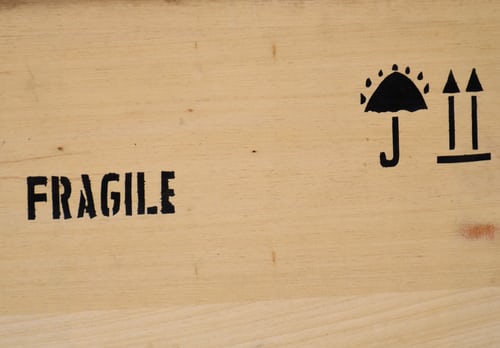I was presented with the concept of the “healthy self” and the “eating disorder self” early on in my treatment for anorexia nervosa.
I remember a psychologist asking me what I’d like to call the eating disorder. I don’t think I responded with much more enthusiasm beyond an “I don’t know” and maybe a pathetic shrug.
In my body I was unable to make eye contact.
In my mind I was afraid she was wasting her time on me.
The self-loathing was paralysing.
I remember sitting in that stuffy office, starring at the thick grey curtains, and imagining how sunny and bright it was outside. In my memory that room was always dark.
Shades of grey and black dominated.
I was sick.
I was broken.
And I was there because I was sick and broken.
The memory is murky but that much was always clear.
She suggested I call it “It” (original I know).
She suggested I write the word “It” on a piece of paper and every time I didn’t want to eat, I could go and put that piece of paper away from me and then be totally free to eat.
I stared harder at the curtain.
Searching for a slither of sunlight.
Searching for proof there was a world outside this room.
Searching for proof there was hope outside this room.
In my mind I imagined swimming out past the breakers with my friends at the beach the weekend just gone. Laughing, being taken for a ride on the back of a jet ski by the lifeguard.
I felt the coolness of the water, the brightness and the warmth of the sun, tasted the salty air and calmed down.
I nodded.
Agreed in words.
Ever ready to get it right.
Ever ready to please.
Hopeful.
After all, with all those letters after her name, a receptionist with large, thick glasses and a big oak desk in her office she surely knew best.
I would give it a go.
I don’t think I ever gave it a go.
The eating disorder wasn’t separate to me, it was me.
Food kept coming.
I kept panicking.
Wanting to die.
In the moments between, I lived.
I lived recklessly but only ever halfway.
Perpetually holding myself back.
Afraid to get it wrong.
Afraid to get it right.
Afraid to be me.
In this week’s blog I want to share with you something that doesn’t often get talked about in eating disorder recovery or if it is acknowledged often gets skimmed over and that is the ways in which the eating disorder “helps” us.
I think there is a fear that if we even consider the eating disorder has pros or serves the person living with an eating disorder it somehow puts it into the mind of the person living with the eating disorder that the eating disorder serves them, when it wasn’t there before.
Trust me, it’s already there. They already feel this on some level.
The eating disorder wouldn’t exist if it served no purpose.
We’re also far from saying the eating disorder is great or the best way of meeting that need but it needs to be acknowledged that the eating disorder is likely serving a purpose.
If you are new to the concept that the eating disorder serves a purpose, it can be a tricky one to understand because at face value the eating disorder is ruining your health, relationships, school or work and ultimately your future. From the outside and even from the inside it’s hard to imagine it has pros. But after reading the rest of this post, I hope you will have a greater understanding of what I mean when I say the eating disorder exists to “help” because I think rather than be fearful of or ignore this, we can use it to make recovery so much more likely.
The distinction I want to make clear before I share examples of 3 of the ways I can, in hindsight, see anorexia “helped” me is that the eating disorder is attempting to help at the intention level which is distinct from the conscious “choice” level.
At the level of truth and reality it is unlikely, and I would argue impossible, that it is helping in a way that is true and meaningful and in particular in a way that couldn’t be better achieved by other more healthful means.
When you live with an eating disorder it is not as simple as knowing that there are better ways you could be doing things and changing what you are doing. It is unbelievably hard to recover from an eating disorder and it’s pointless to pretend otherwise.
I truly believe there are key things left out of traditional eating disorder treatment protocols including the recognition that the eating disorder serves a purpose/s. And I truly believe when we address the purpose/s the eating disorder serves for people and go about assisting them to create new ways of having this or these needs met we can almost inevitably allow them to heal.
This was ultimately my experience with clinical hypnotherapy.
Recovery and taking care of myself became less and less something I had to battle myself to do and more and more something I did naturally.
Here are 3 short examples of ways anorexia nervosa “helped” me all of which I was completely unaware of at the time and maybe if I had of been I’d have been more likely to find the help that could help me develop the real life skills to make those fears obsolete.
- Playing it Small

Anorexia nervosa allowed me to be small, by every definition of the word, but most importantly mentally.
It allowed me to be less likely to be seen, less likely to be head, less likely to be noticed.
It allowed me to live far below what I was capable of.
And you might be reading this confused and thinking “and that’s a good thing?” …
Yes, it’s a good thing.
It’s a good thing when you live in a world that is thrusting upon you the impossible expectations to be unique and stand out and dull yourself and fit in, to rebel and please and relax and be calm, hustle, achieve and succeed all at once.
Life is hard.
When you have a low sense of self-wroth and self-identity and therefore low internal regulation and ability to make choices for yourself the eating disorder fits in well because it gives you a means of never living up to your potential.
It gives you a means of never fully striving to your potential which is amazingly protective because to strive for something you want and to not achieve it is one of the most vulnerable positions to be in.
Vulnerability is uncomfortable.
I can see in hindsight that anorexia nervosa certainly got me out of vulnerability.
Anorexia nervosa got me out of pouring my heart and soul into something or someone fully and completely only to be rejected for being me because when I lived with anorexia there wasn’t a “me” to be rejected. I lived to please others. Therefore, I couldn’t be rejected.
Anorexia allowed me to play it small because I couldn’t risk aiming too high or admitting the level of care or passion, I had in something, how badly I wanted it or how deeply I had tried.
Anorexia allowed me to deceive both myself and others that things weren’t as important to me as they were.
Anorexia allowed me to achieve far below my means and there was comfort in that.
Anorexia was the greatest excuse.
2. Numbing

This was a big one for me.
The combination of running to exhaustion and starving myself was a numbness I can no longer connect to why on earth I’d want that but my gosh, did it work.
My gosh was it addictive.
Going to bed hungry was easy and a given. I enjoyed it (I hate it now).
Running to exhaustion quietened my mind like nothing else (plenty of things allow me to relax and wind down in far more productive ways now).
When you have no means of regulating your emotions starving and over exercising make some kind of sense.
Emotions can be incredibly intense and when you have no filters and boundaries set up between you and others it’s not just your emotions you’re dealing with on a daily basis. You are bombarded by other people’s emotions and energies and take them onboard as though they are your own. When I lived with anorexia nervosa, I thought this was “empathy”. I thought I was just a very empathetic person. I wasn’t. I lacked the basic skill of setting boundaries and dissociating myself from other people and letting go of the relentless desire to “fix them”, make their life better or help make them feel ok (I learned how to do all these skills through the help of clinical hypnotherapy).
The depth of the emotions I felt when I lived with anorexia nervosa was exhausting and to decrease that through whatever means I could was something I wasn’t aware I was trying to do at the time but looking back I can see this is exactly what I was trying to do at the unconscious level. Our bodies are always using what they can and what they know, always trying to do the best for us and if all they know is running and starving that’s all they can use.
In a world of emotional overwhelm that you haven’t developed the skills and capabilities to get yourself out of that then numbness seems like a logical next best (unconscious) choice. Being in a constant state of overwhelm and stress is impossible. I suspect this is why so many people with eating disorders self-harm and abuse drugs and alcohol.
3. Decision Made

When I lived with anorexia nervosa as much as it tore me up inside to be incapable of doing the things, I wanted to do it was theoretically a fast way of making decisions.
As much as I fought with myself to make alternate decisions in most circumstances the decision was already made for me.
Already long pre-decided by anorexia.
There were things I could do and things I couldn’t do and that was it.
My gosh life was a lot more, good and bad and black and white. Which does theoretically make things simpler but it’s not reality because in reality there needs to be room for movement, flexibility, spontaneity and grey.
I would spend hours bargaining with myself, pep talking myself into doing the thing but at the end of the day I knew the decision was made and no amount of willpower or convincing myself to feel or do something different could change that.
Making decisions is a skill and making decisions that are best for you can only truly come when you know who you are. When you live with anorexia nervosa you have such a low to non-existent sense of self that you have no clue how to make decisions for yourself. In my life everyone else was factored into my decision-making process except me. It was probably the most exhausting thing about living with anorexia nervosa the desire to make the right decision by everyone. An impossibility and yet something I strived for non-stop.
When you know who you are and what you value you will be able to make quick decisions.
When you know who you are and what you value you will be able to alter those decisions for the rest of your life based on the feedback you get, how they feel, and as new information comes to light.
Perhaps one of my greatest life lessons of recovery is that life goes on. It wasn’t I recovered and that was it the pain, heartbreak and growth stopped. Far from it.
Recovered was just the beginning.
Summary

What anorexia really did for me was provide me with (very unhealthy and unhelpful) strategies for coping in a world that seemed impossible to cope in.
What anorexia really did for me was create major health problems and detract from my studies, career, friendships, relationships and overall life.
What recovery did for me was allow me to learn the skills I “should” have learned all along. The skills that would have allowed for anorexia to never come into my life in the first place. The skills that allow me to make better sense of the world I lived in. The skills that first allowed me to survive and eventually thrive in a world that is unquestionably full of hardship, injustice and paradoxes.
If full recovery from an eating disorder is your goal, I can guarantee you’re going to have to do way more to achieve that than you bargained for…
Recovering from an eating disorder requires diving deeper than you likely yet know is possible.
Recovery from an eating disorder takes looking at parts of yourself you likely don’t yet know exist.
Recovery from an eating disorder means letting go of every way you knew how to be ok in this world.
Recovery from an eating disorder requires challenging and overcoming beliefs that you’ve held to be true your entire life.
Recovery from an eating disorder means going against what much of society is telling you to do.
Recovery from an eating disorder alters your relationship not just with yourself but with all others.
Ultimately in recovery there is no part of your life that is left unchanged.
Recovery is a risk and you are “giving up” a lot (including the things I’ve described above if they are/were things that perpetuated your eating disorder) but the thing is once you’ve developed the skills to have all those needs met in other ways they are things you can give up easily.
Consider taking the risk because it may not feel like it but not recovering is the bigger risk.
At least give yourself a chance at a different future.
With my whole heart I hope you found this information useful and inspiring.

Become Great. Live Great.
Bonnie.



